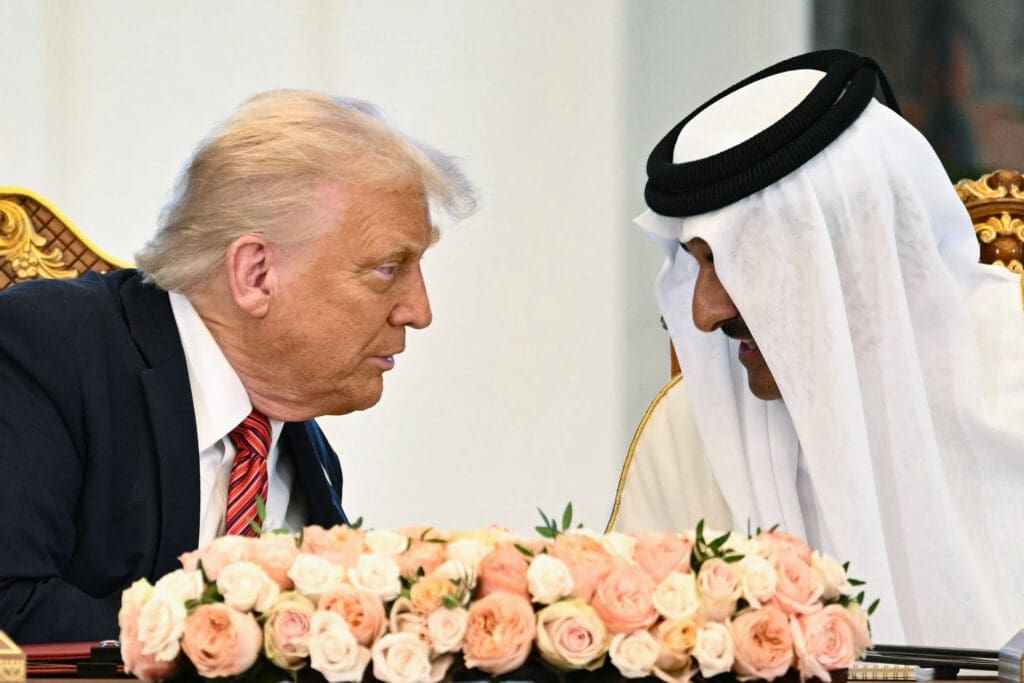Conflict mediation has emerged as one of the most indispensable tools in the contemporary international system. At a time when great-power competition intensifies across multiple domains, political, economic, and technological, the ability of neutral mediators to facilitate communication and reduce the risks of escalation is more crucial than ever. Yet despite its importance, conflict mediation is an under-protected practice. The recent Israeli attack on Qatari territory, targeting a political office of Hamas under mediation in Doha, underscores this vulnerability. The attack, which led to the tragic death of a Qatari security officer and several Palestinians, alongside injuries to Qatari nationals, is not only a violation of international law and the United Nations Charter but an assault on the very institution of mediation itself.
Protecting mediators must therefore become a central priority for the international community as it navigates an increasingly multipolar order, in which the diffusion of power increases the risk of proxy wars and competitive interventions. On the other hand, multipolarity creates space for new mediators, often small states with credibility across divides, to step into global peace processes. Yet without stronger safeguards, the targeting of mediators risks eroding trust in dialogue, prolonging conflicts, and weakening collective efforts to contain instability.
The Israeli Attack on Qatar and Its Implications
The Israeli strike on Qatari soil constitutes a blatant violation of Article 2(4) of the UN Charter, which prohibits the threat or use of force against the territorial integrity or political independence of any state. More than an act of aggression against Qatar, the attack represented a direct attempt to sabotage ongoing mediation between Israel and Hamas that had been in motion for nearly two years.
The global reaction was telling. An outpouring of diplomatic support flowed to Doha from diverse international actors, acknowledging Qatar’s established role as one of the most effective mediators in contemporary diplomacy. Qatar’s track record, ranging from Sudan and Venezuela to Afghanistan and the Democratic Republic of Congo, has positioned it as a trusted interlocutor in conflicts where traditional powers often lack legitimacy. The symbolic targeting of Qatar’s mediating role thus struck a nerve within the international system, as it exposed the fragility of a global order that benefits from, but does not adequately protect, mediation efforts.
Historical Precedents of Attacks on Mediators
The targeting of mediators is not entirely new. History provides sobering reminders of the dangers faced by individuals and states who take on the delicate task of facilitating dialogue.
Count Folke Bernadotte, the United Nations’ first mediator in the Arab–Israeli conflict, represented the international community’s earliest attempt to resolve a conflict that it had helped to ignite with its 1947 vote to partition Palestine. On September 17, 1948, Bernadotte was assassinated in Jerusalem by the Zionist militia Lehi, otherwise known as the Stern Gang, who opposed his proposals for peace, including his call for the return of refugees. His death not only deprived the UN of a crucial mediator but also set a precedent for violence against neutral intermediaries in the Arab–Israeli conflict.
Decades later, in 2012, Arsala Rahmani, a senior member of Afghanistan’s High Peace Council, faced a similar fate. Rahmani played a critical role in reaching out to Taliban commanders to facilitate local reconciliation efforts. On May 13 of that year, he was assassinated in Kabul by unknown gunmen, widely believed to be spoilers intent on derailing fragile peace negotiations. His killing disrupted momentum toward dialogue and highlighted the lethal risks faced by mediators in complex insurgency environments.
These cases demonstrate that targeting mediators serves a dual purpose for spoilers: It silences moderate voices and disrupts communication channels that might otherwise pave the way for compromise. The Israeli attack on Qatar mirrors these earlier assaults, confirming that mediators can be perceived as threats by those who profit from prolonged violence.
Why Protecting Mediators Matters
The killing or targeting of mediators carries systemic consequences that extend beyond the tangible act of violence.
One of the most immediate consequences of targeting mediators is the erosion of trust in mediation itself. The ability of mediators to operate rests on their perceived neutrality and safety. If mediators are vulnerable to attack, conflicting parties may begin to question whether mediation is a secure or worthwhile process, undermining the credibility of the entire enterprise.
The removal of mediators also risks prolonging conflict. Mediators serve as vital conduits of information between adversaries: they interpret signals, clarify bargaining positions, and reduce misperceptions that might otherwise escalate into renewed violence. When mediation channels are disrupted, a dangerous vacuum emerges, one that hardliners and spoilers are often quick to exploit.
Attacks on mediators furthermore delegitimize international norms. They constitute direct assaults on the international community’s commitment to peaceful dispute settlement and undermine Article 33 of the UN Charter, which explicitly enshrines mediation and negotiation as recognized methods of conflict resolution. In this sense, such acts corrode the legal and normative foundations of global order.
Finally, the failure to respond to attacks on mediators creates a moral hazard that emboldens spoiler behavior. If perpetrators face no political, legal or reputational costs, the normalization of violence against mediators becomes a rational strategy for those seeking to derail peace efforts. This sets a dangerous precedent in which obstructionist actors calculate that eliminating mediators is an effective means of prolonging or escalating conflict.
Toward a Norm of Protection for Mediators
The international community has a moral and strategic duty to protect mediators. In a multipolar world where conflicts are increasingly complex, the demand for effective mediation will only grow. Therefore, concrete measures must be taken. These include elevating the protection of mediators to a global norm championed within the United Nations and reinforced by regional organizations. Just as the international community has developed norms around the protection of civilians and humanitarian workers, a parallel framework is required for mediators.
The UN could also adopt a formal resolution recognizing attacks on mediators as violations of international law subject to collective response. Such recognition would not only strengthen legal protections but also provide mediators with a stronger mandate in negotiations. Rogue actors must face reputational, political and economic costs for targeting mediators. Sanctions, diplomatic isolation, and, where relevant, referrals to international courts could form part of a graduated response system.
Beyond normative commitments, mediators require enhanced support. Small states like Qatar, which have assumed disproportionate mediation roles need international backing to ensure the safety of their missions.
A Wake-Up Call?
The Israeli assault on Qatar’s mediation efforts is a wake-up call. It is a reminder that mediators are not neutral bystanders in the eyes of spoilers; they are obstacles to strategies of domination and violence. Just as the assassination of Folke Bernadotte and Arsala Rahmani derailed earlier peace processes, a failure to protect today’s mediators risks undermining fragile negotiations and prolonging conflicts with devastating human costs.
The world must therefore internalize and enforce a norm that elevates the protection of mediators to a central principle of international order. Doing so is not only a matter of justice for those who risk their lives in the pursuit of peace but also a strategic necessity for a global system that depends on mediation to prevent the descent into uncontrolled conflict.


